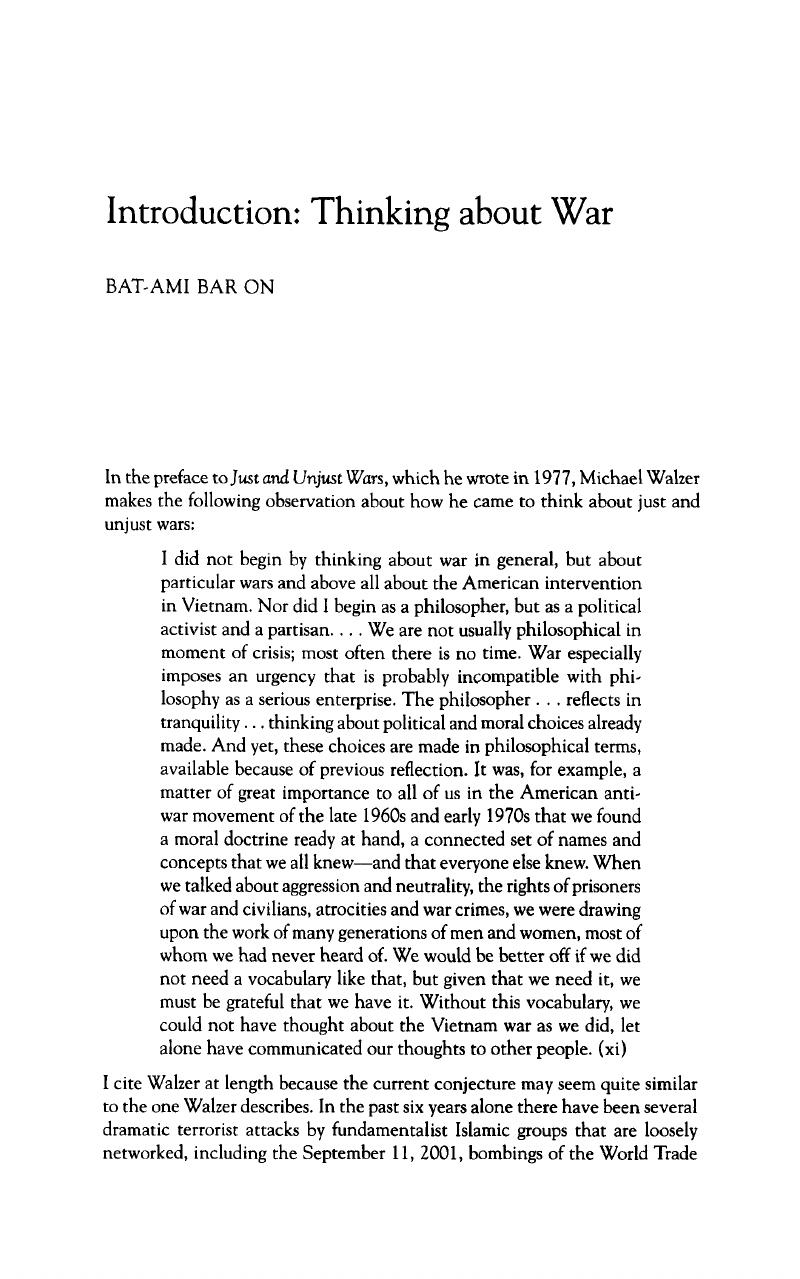No CrossRef data available.
Article contents
Introduction: Thinking about War
Published online by Cambridge University Press: 11 March 2020
Abstract
An abstract is not available for this content so a preview has been provided. Please use the Get access link above for information on how to access this content.

- Type
- Research Article
- Information
- Copyright
- Copyright © 2008 by Hypatia, Inc.
References
Addams, Jane. 2003. Addams's essays and speeches on peace. Ed. Fischer, Marilyn and Whipps, Judy D.Bristol, England: Thoemmes Press.Google Scholar
Calhoun, Cheshire. 2004. Introduction. In Setting the moral compass: Essays by women philosophers. New York: Oxford University Press.Google Scholar
Gelb, Leslie H., and Rosenthal, Justine A. 2003. The rise of ethics in foreign policy. Foreign Affairs 82 (3): 2–7.CrossRefGoogle Scholar
Rosa, Luxemburg. 1915. The Junius pamphlet. http://www.marxists.org/archive/luxemburg/1915/junius/index.htm.Google Scholar
Rengger, Nicholas. 2002. On the just war tradition in the twenty‐first century. International Affairs 78 (2): 353–63.CrossRefGoogle Scholar
Smith, Rupert. 2007. The utility of force: The art of war in the modern world. New York: Alfred A. Knopf.Google Scholar
Walzer, Michael. 1977. Just and unjust wars: A moral argument with historical illustrations. New York: Basic Books.Google Scholar
Weltman, John J. 1995. World politics and the evolution of war. Baltimore, Md.: Johns Hopkins University Press.Google Scholar
Woolf, Virginia. 1938. Three guineas. http://etext.library.adelaide.edu.au/w/woolf/virginia/w91tg/.Google Scholar


